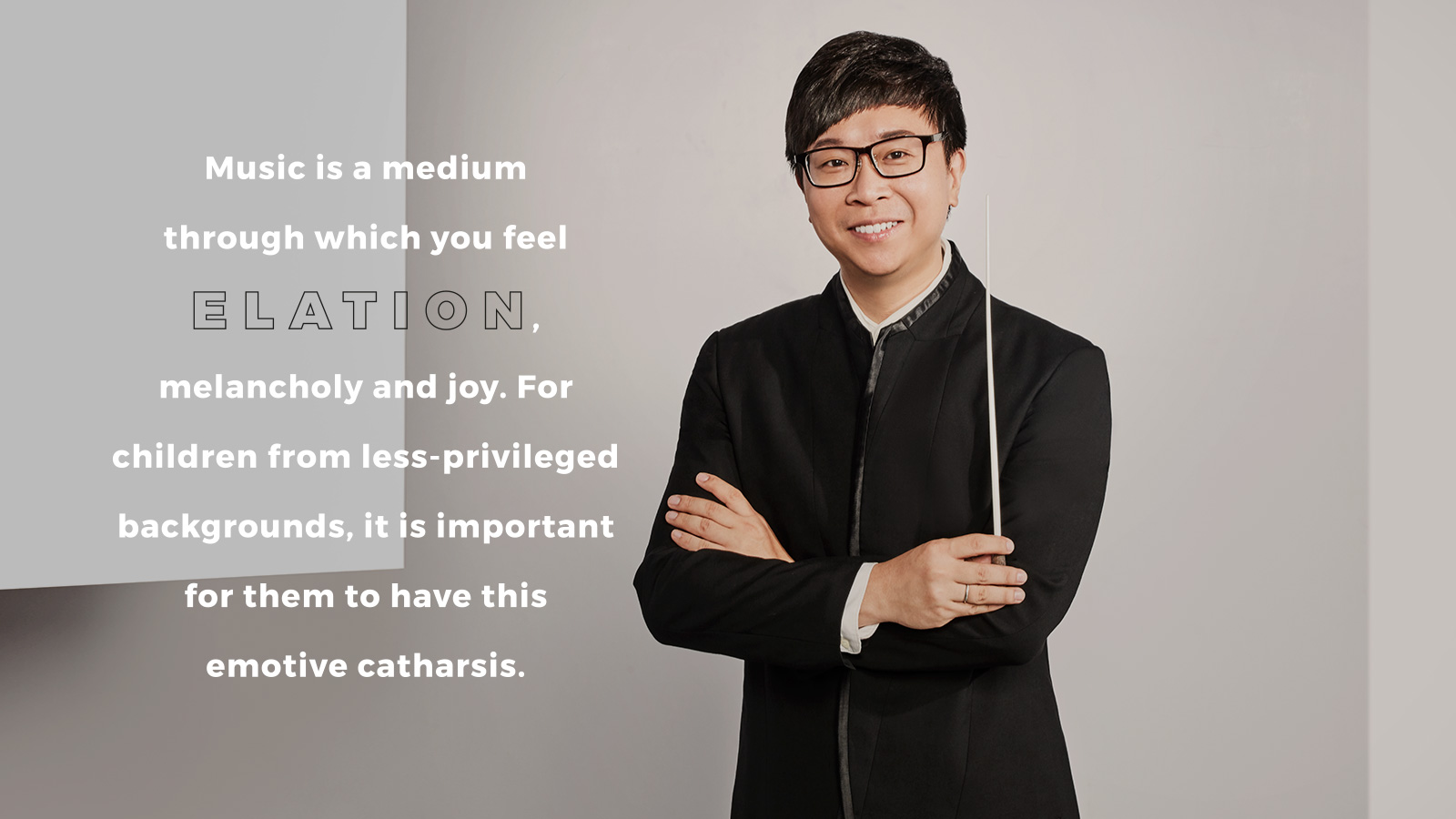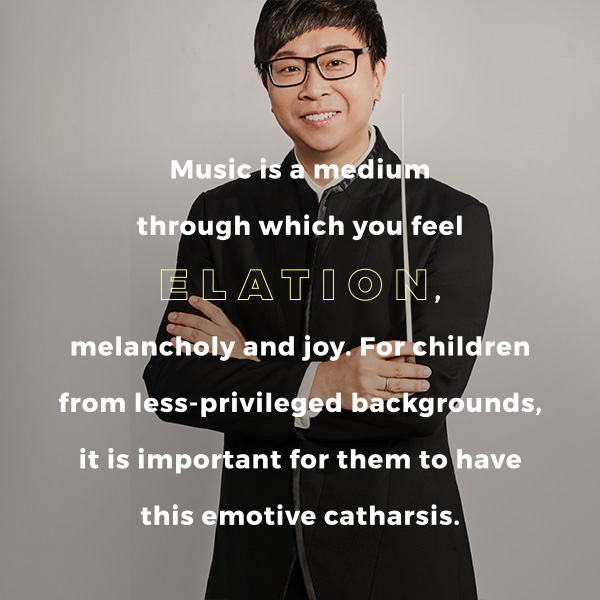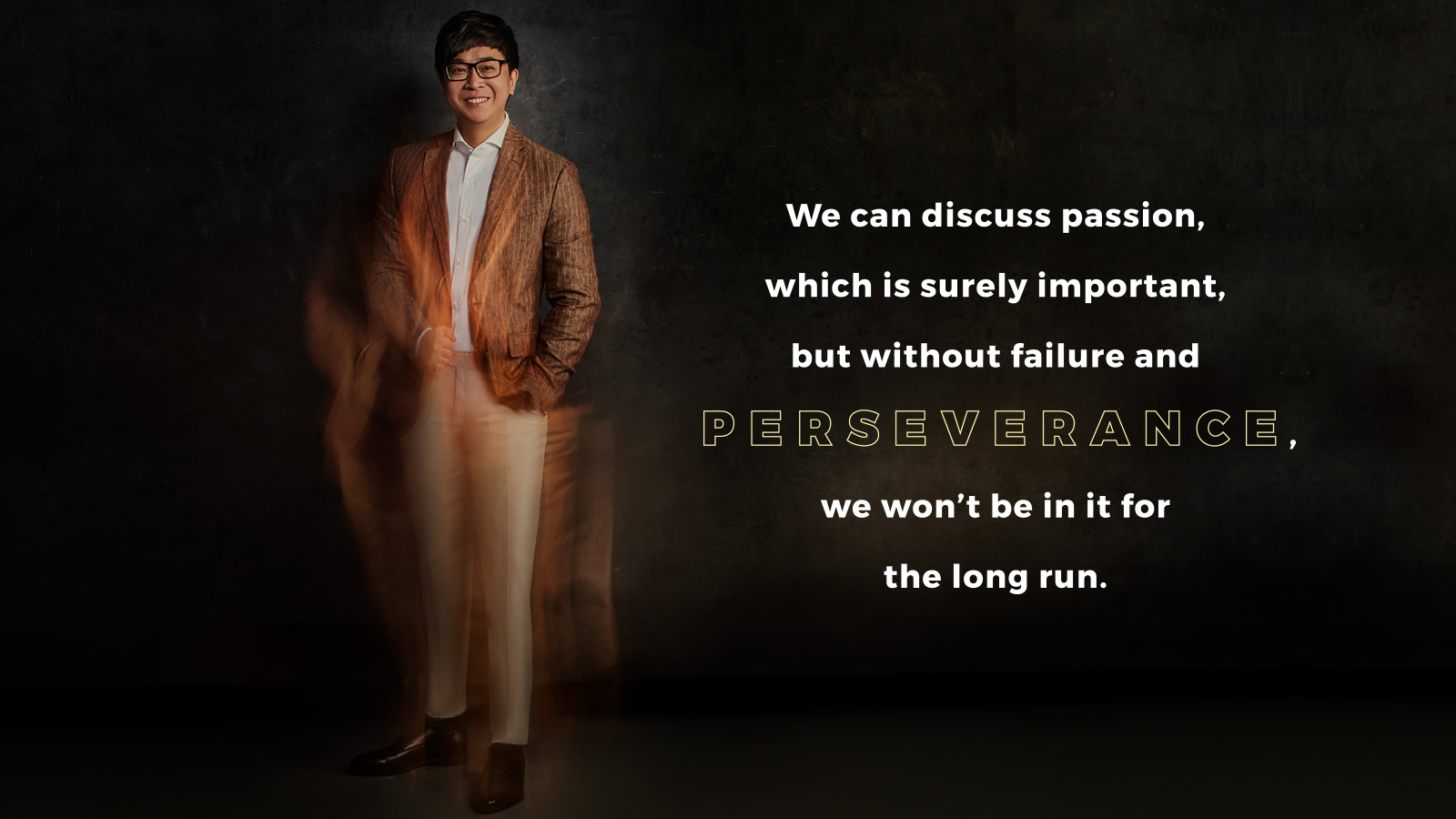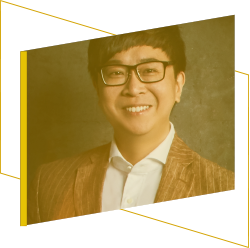BUILDING HIS OWN DREAM
The amiable man realised he had musical aspirations of his own when he picked up his first musical instrument — a cornet — when he signed up for the school band as an Extracurricular Activity (now known as Co-Curricular Activities) in primary school. The 33-year-old, who is managed by Columbia Artists Management, is grateful for how he grew up learning music within Singapore’s education system. He stresses that learning and practising music is not a luxury reserved for a privileged minority, and describes himself as coming from “a working-class, Mandarin-speaking family in Jurong”.
“I feel incredibly fortunate to have grown up in Singapore which has such a thoughtful educational system. Through it, I received music lessons from Primary 1 through to junior college just by being in the school bands, without incurring additional costs. And I could always borrow a top-class professional instrument from my school inventory,” he reminisces.
Kahchun, who now travels regularly across the US, the UK and Europe, is also thankful for his parents’ support. His A-level results had earned him a place to read Physics at the University of Cambridge but instead, he opted for a scholarship to study at the Yong Siew Toh Conservatory of Music at the National University of Singapore. “I told my parents that I had been diligent all my life and that I had got my As, so please give me the freedom to pursue music as a life, not just as a hobby,” he says. “They respected my decision. Everything that I am a part of now, it was attainable only because of their unfailing support.” His supportive parents now attend all his concerts in Singapore, and have also gone to some in Japan that he has flown them to.
While Kahchun did not face resistance from his family, he has met challenges along the way. He remembers that his ambition was “vastly unsupported” by those around him in school — even from a young age. In primary school, a teacher had asked the students what they wanted to become when they grew up. When Kahchun answered “musician”, the teacher and classmates laughed at him. “From this experience, I thought that I had to prove them wrong and that I was not joking about my ambition,” he recalls. Fortunately, he found mentors and friends who believed in his dreams over the years. He added: “I always had the good luck of encountering new opportunities.” In junior college, he auditioned for the Singapore National Youth Orchestra a few times but was never selected. However, he then ended up standing in for a schoolmate who could not make it for practice and the teachers there enjoyed his performance and invited him to stay on.

















